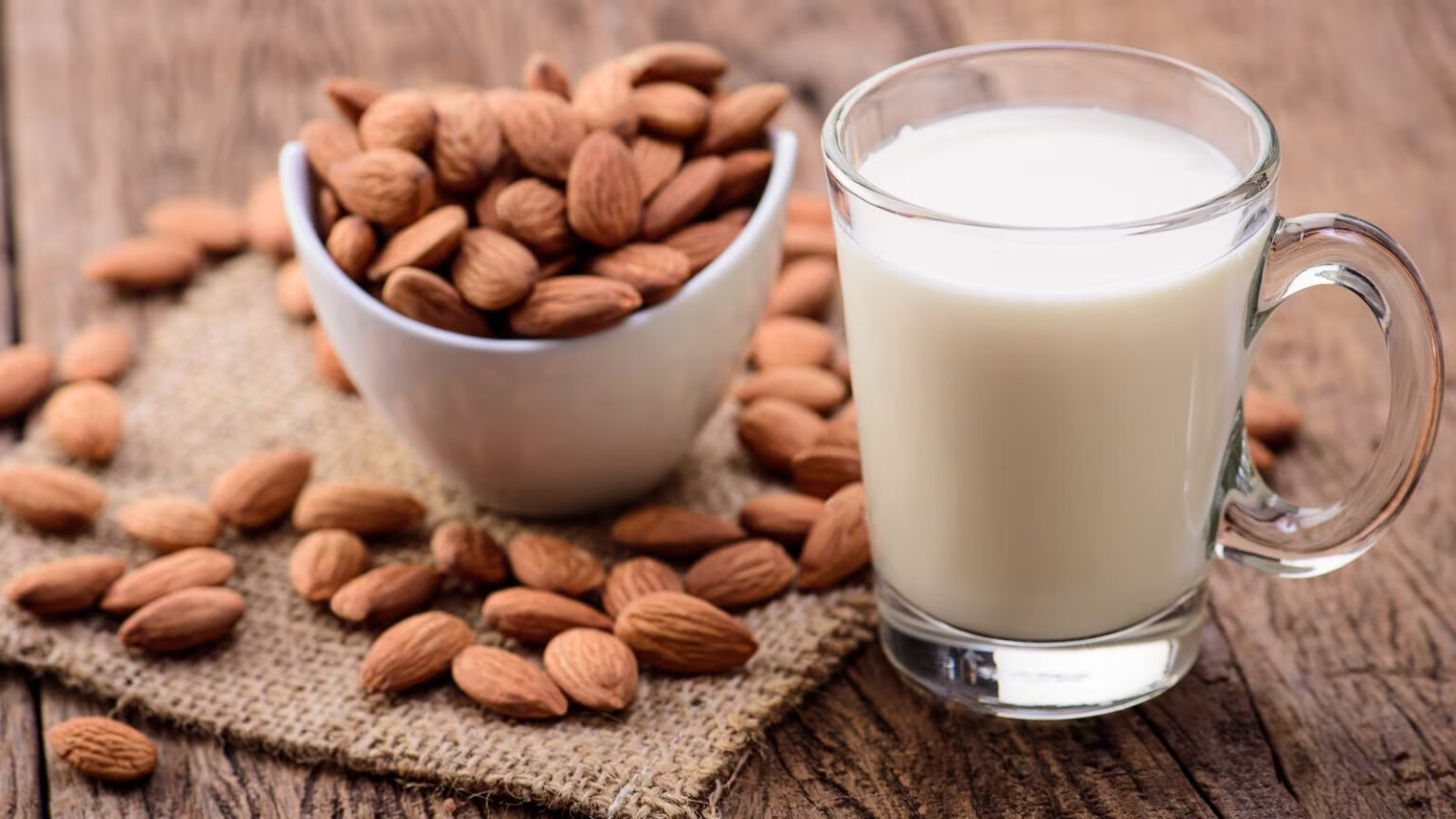If you’ve been seeking for a dairy-free milk alternative, you’ve definitely come across almond milk and wondered if it’s healthy. Almond milk is a fantastic substitute, regardless of whether you’re vegan, have a milk sensitivity, or simply don’t like the taste. Almond milk is created by combining almonds with water, then filtering the resulting liquid to get rid of the solids. Additionally, you can prepare it by mixing water with almond butter. Its flavor is nice and nutty, and its texture is creamy like that of ordinary milk. Due to this, it is a well-liked option for vegans and others who are intolerant or allergic to dairy. Almond milk is typically located in the health food department of most stores. Making it at home is also really simple. There are numerous kinds and tastes of commercial almond milk available. It is advisable to use almond milk without added sugar for health reasons.
While almond milk is growing in popularity, it’s crucial to remember that these nutrients aren’t entirely replaced by almond milk; instead, you should make sure you get enough protein and calcium from other sources. In comparison to cow’s milk, which has 300 milligrams of calcium per cup, only one cup has 2 milligrams of calcium and 8 grams of protein. Make sure to read the labels before buying anything and choose the almond milk with the fewest additives and preservatives.
Almond milk is created by combining almonds with water, then filtering the resulting liquid to get rid of the solids. Additionally, you can prepare it by mixing water with almond butter. Its flavor is nice and nutty, and its texture is creamy like that of ordinary milk. Due to this, it is a well-liked option for vegans and others who are intolerant or allergic to dairy. Almond milk is typically located in the health food department of most stores. Making it at home is also really simple. There are numerous kinds and tastes of commercial almond milk available. It is advisable to use almond milk without added sugar for health reasons.
1. It helps with weight management
Compared to full milk’s 146 calories, 2 percent milk’s 122 calories, 1 percent milk’s 102 calories, and skim milk’s 86 calories, one cup of almond milk has only 60 calories. It serves as a fantastic replacement that will aid in your weight loss or maintenance.
2. It keeps your heart healthy
Almond milk is free of cholesterol and saturated fat. It also helps reduce high blood pressure and heart disease because of its low salt content and high content of heart-healthy fats like omega fatty acids, which are normally present in fish.
3. It keeps your bones strong
While almond milk doesn’t have as much calcium as cow’s milk, it does include 30% of the daily necessary amount and 25% of the daily recommended amount of vitamin D, which lowers your chances of developing osteoporosis and arthritis and boosts your immune system. Additionally, the combination of these two nutrients promotes the development of strong bones and teeth.
4. It keeps your skin glowing
Almond milk includes 50% of the daily required intake of vitamin E, which has antioxidant characteristics vital for the health of your skin, including defending it against sun damage.
5. It barely impacts your blood sugar
Almond milk is minimal in carbohydrates and won’t dramatically raise your blood sugar levels, lowering your chance of developing diabetes. Since it has a low glycemic index, your body will use the carbohydrates for energy rather than storing them as fat.
6. It contributes to muscle strength and healing
Although almond milk only has 1 gram of protein per serving, it is rich in B vitamins like iron and riboflavin, which are crucial for healing and muscular growth.
7. It keeps your digestion in check
Each serving of almond milk has almost one gram of fiber, which is crucial for a healthy digestive system.
8. It doesn’t contain lactose
About 25% of Americans have lactose intolerance, which makes it difficult for them to digest the sugar in cow’s milk. Almond milk is a good, lactose-free replacement as a result.
9. It tastes better than cow’s milk
Almond milk doesn’t taste like cow’s milk, making it ideal for people who don’t enjoy the flavor. Many people describe its distinct flavor as being light and sharp. Its versatility allows you to substitute it for cow’s milk in recipes that call for it. It won’t taste the same, but the consistency will be the same.
10. It doesn’t require refrigeration
You’ll be more likely to bring almond milk with you to work or on a camping trip if you know that it doesn’t need to be refrigerated. It is a delicious, healthy staple that is fine at room temperature, increasing your daily intake of all the wonderful nutrients listed above.
11. It’s easy to make
Having a cow graze in your garden is a little cumbersome; making almond milk at home is an easy substitute. It is created by blending water and almonds that have been finely ground, then straining the pulp to remove it from the liquid.




